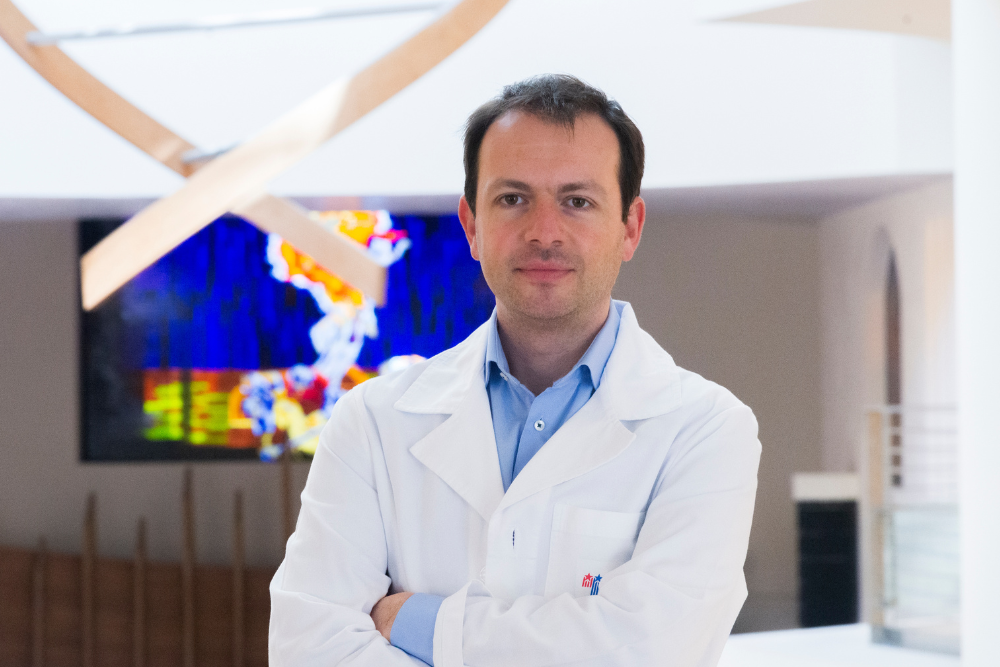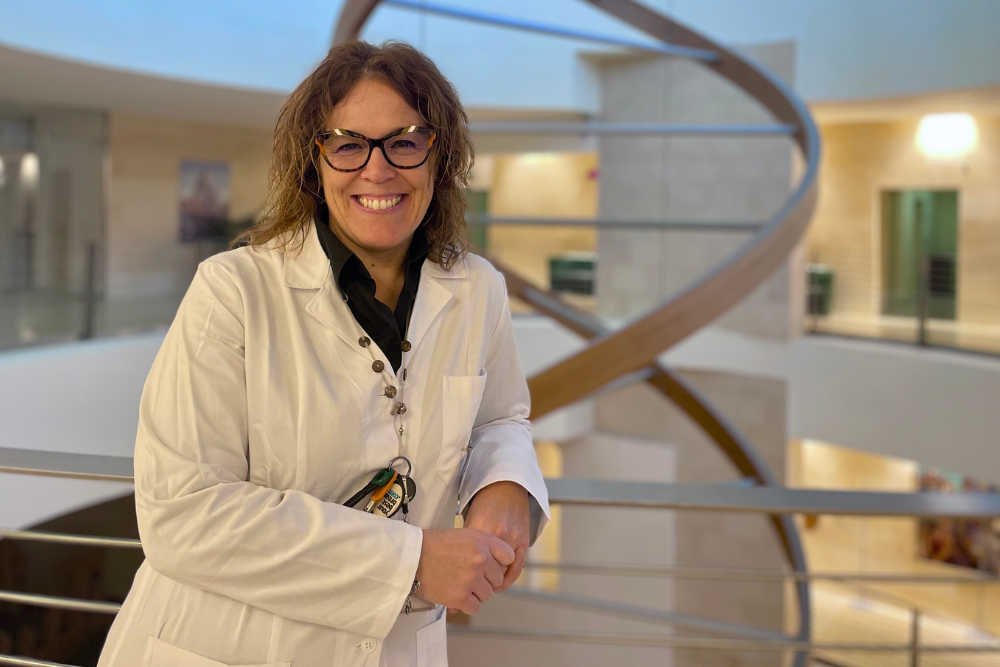Daniela Cesana and Alessio Cantore presented two projects, respectively to investigate the impact, safety and efficacy of gene therapy through the 'signatures' of circulating DNA and to investigate the biology of liver cells in order to exploit them in the field of gene therapy.
The European Research Council (ERC), Europe's leading funding organisation supporting researchers of different nationalities and ages in Europe, has announced that among the researchers awarded a Consolidator Grant, two are from the San Raffaele-Telethon Institute for Gene Therapy in Milan (SR-Tiget): they are Daniela Cesana and Alessio Cantore, who participated with the IRCCS Ospedale San Raffaele in Milan and the Vita-Salute San Raffaele University, respectively.
Consolidator Grants are the funding allocated by ERC, after rigorous evaluation, to researchers with 7-12 years of post-doctoral experience who want to consolidate their independent career, strengthen their research team and continue to develop a successful career in Europe.
Specifically, the project of Daniela Cesana, head of the Tissue Dynamics and Biomarker Signatures in Acquired and Hereditary Diseases programme at SR Tiget, aims to investigate the impact, safety and efficacy of gene therapy at the level of the whole organism by means of liquid biopsies analysing circulating DNA, a sort of 'signature' that damaged cells leave in the body when they die or are damaged.
Gene therapy is revolutionising the treatment of inherited and acquired diseases by using engineered cells to restore normal body functions. Liquid biopsies are increasingly recognised as a functional and non-invasive approach to detect dynamic changes caused by disease progression or in response to specific treatments. The innovative aspect of this proposal is to exploit circulating DNA to monitor particular biological events, both before and after a specific treatment. This strategy will make it possible to assess the efficacy of gene therapy in restoring physiological functions in patients with genetic diseases such as metachromatic leukodystrophy or certain forms of cancer, and also offer the possibility of predicting its effectiveness in advance. Thanks to this technology, more effective and personalised treatments could thus be offered to patients. The project will be carried out in close collaboration with the institute's clinical team.
"I am honoured to receive this important grant, an award that fills me with pride and reflects years of dedication, perseverance and passion for my work. The journey has not been without challenges, but each obstacle has been a valuable lesson, shaping me both personally and professionally. I share this moment with all those who have supported and inspired me along the way, first and foremost my family, whose unwavering care and love has been my greatest strength, as well as my colleagues and mentors. Their encouragement has been the driving force behind my efforts. This award motivates me to continue striving for excellence and to make my contribution, said Daniela Cesana.
The 'HEPAGENE' project by Alessio Cantore, a UniSR researcher and Group Leader in the SR-Tiget's Hepatic Gene Therapy Unit, will instead be dedicated to investigating the biology of liver cells, the hepatocytes, which represent an ideal target for gene therapy, particularly for paediatric-onset diseases.
Genetic engineering of hepatocytes, the main cells of the liver, could potentially cure many serious and rare genetic diseases of metabolism. So far, this has been achieved in adult patients suffering from certain genetic diseases using techniques that do not, however, allow genetic modification to be maintained after cell proliferation, such as during liver growth, and therefore cannot be applied in paediatric patients.
On the other hand, other genetic engineering technologies are available that allow the cellular DNA to be modified in a stable manner even after proliferation, thus ensuring that the modification is also maintained in daughter cells. Cantore's group has contributed to the development of gene transfer platforms of this type, but these have not yet been tested on humans.
The aim of this project is to accelerate the clinical application of these platforms by studying the post-natal growth and maturation process of liver cells, in order to assess the efficiency, safety and stability of different genetic engineering strategies when performed early in life. The ultimate goal is to develop new gene correction treatments to be applied to young paediatric patients with the potential to become definitive cures for severe genetic diseases of liver metabolism.
"Receiving this prestigious funding not only reinforces my passion and dedication for gene therapy research, but also provides valuable resources for my professional growth. I will do my best to advance the project and improve our knowledge of liver biology to create new therapeutic opportunities for rare genetic diseases of childhood," said Alessio Cantore.
"The funding provided by ERC is a tangible demonstration of the immense value of the projects to which these young and talented researchers devote their time, commitment and dedication, specifically those involving rare genetic diseases. We are extremely proud of their work and their passion for scientific progress in support of the patient community and proud of the excellent research being conducted in our Institutes," said Celeste Scotti, Director of Research and Development at Fondazione Telethon.

